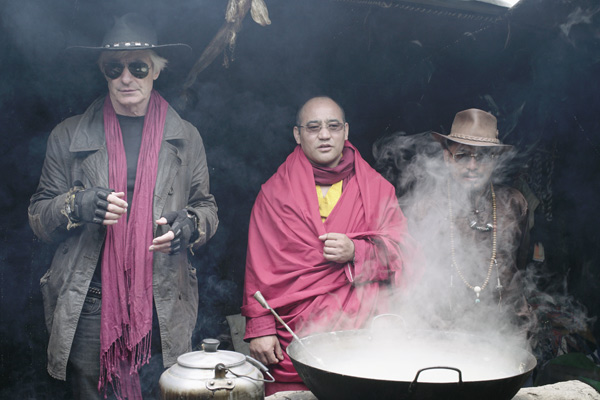In his master's footsteps


Retaining a deep fascination for China and its culture, Brahm began to learn Chinese in the United States during the late 1970s and later studied at Tianjin's Nankai University.
A fluent Mandarin speaker, Brahm recalls his previous career as a lawyer assisting foreign enterprises looking to invest in China and as an adviser to the Chinese government on economic and environmental policies for over 12 years.
But he gave up wearing suits to embark on a new chapter of his life in 2002 as he grew increasingly weary of the emphasis placed on materialism.
To seek a more meaningful life, Brahm shifted his focus to Tibetan-inhabited areas, to indulge his fascination for a mystical kingdom, which is thought to bear similarities to Shangri-La as described in British author James Hilton's 1933 novel Lost Horizon.
From 2001 to 2010, Brahm organized three expeditions traveling across the Tibet autonomous region and Qinghai and Yunnan provinces to produce three documentaries and a 10-episode documentary series Searching for Shangri-La.
Somewhat of a follow-up to the Shangri-La series, which earned a rating of 7.2 points out of 10 on the Tencent Video streaming site, Searching for the Lotus-Born Master exemplifies Brahm's latest exploration that goes deeper into a theme to connect the history of China and its neighboring countries.
"The Lotus-Born Master spent a lot of his life traveling through China, India, Nepal and Bhutan where he was responsible for promoting or establishing Tibetan Buddhism," explains Brahm.
"The master was also the one who brought Tibetan Buddhism from India and Nepal to Bhutan and then spread it across the Qinghai-Tibet Plateau. He is an important and influential person in our history," he adds, referring to the countries that were influenced by Buddhism.





































